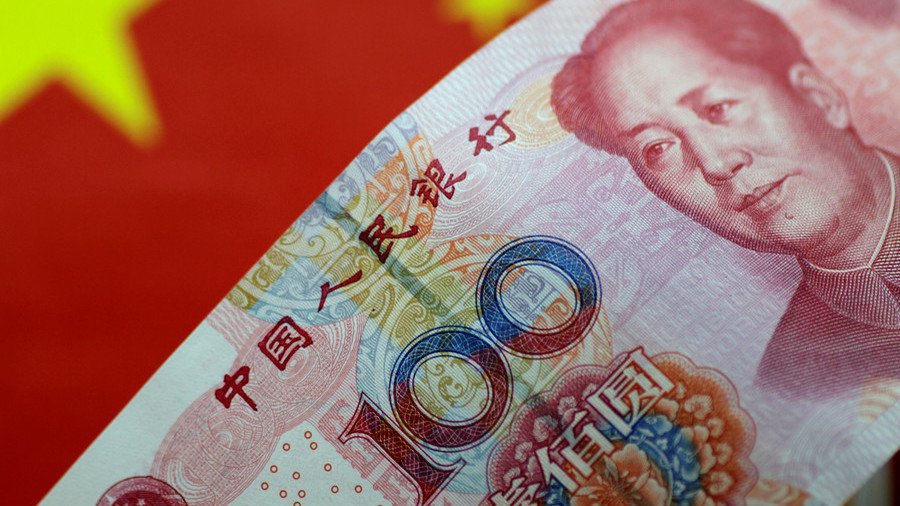China’s petro-yuan oil contracts surge as US sanctions hit Iran

Chinese oil futures contracts denominated in yuan hit their daily limit with a 5-percent spike on Tuesday as the US kicked off the first round of sanctions against Iran.
Washington’s decision to withdraw from the Iran nuclear deal and target the country's oil sector with sanctions is expected to significantly boost China's leverage to demand crude imports be priced in yuan.
The first round of anti-Iran sanctions, targeting the country’s automotive sector and metals trading, took effect on Tuesday after midnight US Eastern Standard Time (4:01am GMT). Tougher restrictions, scheduled for early November, will reportedly be focused on Iran's oil and shipping industries.
China, the world’s top oil importer, started its long-anticipated crude oil futures contract that is priced in yuan and convertible into gold. The contract attracted nearly 27 billion yuan ($4 billion) during the first trading session. The step was aimed at diminishing the role of the US dollar in oil trading, strengthening the national currency and at bypassing US sanctions by trading oil in yuan.
Iran is a major crude supplier to China. US sanctions on Iran pushed China's yuan-denominated oil futures contract nearly five percent higher, the biggest daily move since the petro-yuan's inception in March. The main contract SC1809 closed at 537.2 yuan per barrel, rising by 25.5 yuan or 4.98 percent, according to Shanghai International Energy Exchange.
China is expected to become a chief beneficiary of the US unilateral sanctions against the world’s biggest energy producers, including Russia, Iran and Venezuela. The petro-yuan would save China the cost of exchanging dollars, the main global currency used in oil trade. It would also increase the use of the Chinese national currency in global financial trade, challenging the greenback.
In 2016, the Chinese yuan was included in the Special Drawing Right (SDR) basket alongside the US dollar, the Japanese yen, the euro, and the British pound. The move granted yuan the status of a reserve currency.
For more stories on economy & finance visit RT's business section















